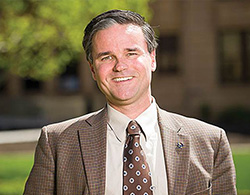Webinars
7 Stages of Distraction Denial
Distracted driving constitutes a profound public health and safety crisis, contributing to a surge in road fatalities and injuries over the last two years. eDriving has partnered with renowned brain scientist, Dr. Paul Atchley, to help drivers confront the common denials keeping them locked into life-threatening bad habits. This webinar will arm you with brain science and compelling research to break down the misconceptions among your drivers, and will provide ideas for how to permanently break these behaviors using policy, enforcement and a telematics-based behavior change program.
Designed to help companies engage their drivers in confronting and breaking their own distracted driving bad habits, Dr. Atchley’s powerful webinar will help change minds, save lives and reduce collisions.
What you’ll learn:
- The truth about multitasking
- The most dangerous place to text and why
- Why there is virtually no difference between hands-free and hands-held phone use
- What companies have learned about productivity losses while conducting business from the car
- How to set the right cultural context for change within your organization
- How the right deployment of telematics, micro learning, and gameification can permanently change behaviors
 Presenter: Paul Atchley, Ph.D.
Presenter: Paul Atchley, Ph.D.
eDriving Advisor
Paul Atchley is eDriving’s award-winning Brain Scientist Advisor. Dr. Atchley has been conducting research and teaching about cognitive factors related to driving for over 25 years.
As a Professor of Psychology, he specializes in research on the real-world implications of multitasking, with decades of experience in the classroom and the laboratory and an impressive 60+ publications on cognitive processes.
Dr. Atchley wears multiple hats as an academic leader, University of Kansas faculty member, brain scientist and a highly respected, publicly recognized industry expert. He addresses distracted driving from multiple perspectives and is working to communicate this expertise publicly so that it can accelerate positive change.
His work efforts to reduce distracted driving have been highlighted by national and international press such as NPR and the New York Times.
![[icon]](https://www.edriving.com/wp-content/themes/edriving-2019/assets/images/download-alt.svg)